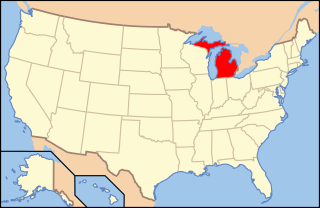
Egan v Canada, [1995] 2 SCR 513 was one of a trilogy of equality rights cases published by the Supreme Court of Canada in the second quarter of 1995. It stands today as a landmark Supreme Court case which established that sexual orientation constitutes a prohibited basis of discrimination under section 15 of the Canadian Charter of Rights and Freedoms.
Claire L'Heureux-Dubé is a retired Canadian judge who served as a puisne justice on the Supreme Court of Canada from 1987 to 2002. She was the first woman from Quebec and the second woman appointed to this position, after Bertha Wilson. Previously, she had been one of the first woman lawyers to handle divorce cases, and was the first woman appointed as a judge to the Quebec Superior Court and the Quebec Court of Appeal.

Delwin Vriend is a Canadian teacher who was at the center of a landmark provincial and federal legal case, Vriend v. Alberta, concerning the inclusion of sexual orientation as a protected human right in Canada.

The Canadian Human Rights Act is a statute passed by the Parliament of Canada in 1977 with the express goal of extending the law to ensure equal opportunity to individuals who may be victims of discriminatory practices based on a set of prohibited grounds.

Vriend v Alberta [1998] 1 S.C.R. 493 is an important Supreme Court of Canada case that determined that a legislative omission can be the subject of a Charter violation. The case involved a dismissal of a teacher because of his sexual orientation and was an issue of great controversy during that period.

The Human Rights Code is a statute in the Canadian province of Ontario that guarantees equality before the law and prohibits discrimination in specific social areas such as housing or employment. The code's goal specifically prohibits discrimination based on race, colour, gender identity or expression, sex, sexual orientation, disability, creed, age and other grounds. The code is administered by the Ontario Human Rights Commission and enforced by the Human Rights Tribunal of Ontario.

Freedom of religion in Canada is a constitutionally protected right, allowing believers the freedom to assemble and worship without limitation or interference.

Canadian lesbian, gay, bisexual, and transgender (LGBTQ) rights are some of the most extensive in the world. Same-sex sexual activity, in private between consenting adults, was decriminalized in Canada on June 27, 1969, when the Criminal Law Amendment Act, 1968–69 was brought into force upon royal assent. In a landmark decision in 1995, Egan v Canada, the Supreme Court of Canada held that sexual orientation is constitutionally protected under the equality clause of the Canadian Charter of Rights and Freedoms. In 2005, Canada became the fourth country in the world, and the first in the Americas to legalize same-sex marriage. In 2022, Canada was the third country in the world, and the first in North America, to fully ban conversion therapy nationwide for both minors and adults.

The Foundation for Equal Families is a Canadian gay and lesbian rights group founded in 1994 following the failure of Bill 167 in the Legislative Assembly of Ontario. The group's mandate is "Dedicated to achieving recognition and equality for same sex relationships and associated family rights through education and legal action". Meeting this mandate was accomplished by intervening in various precedent-setting legal cases, through representation at various pride parades and most notably in suing the Canadian federal government over failure to amend 58 pieces of federal legislation that were charter-infringing due to the definition of spouse.

Smith v Gardner Merchant [1998] IRLR 510 is a UK labour law case, concerning the possibility of claiming compensation for discrimination under the gender statutes. It took place before the Employment Equality Regulations 2003 were introduced.

Human rights in Canada have come under increasing public attention and legal protection since World War II. Prior to that time, there were few legal protections for human rights. The protections which did exist focused on specific issues, rather than taking a general approach to human rights.
A protected group, protected class (US), or prohibited ground (Canada) is a category by which people are qualified for special protection by a law, policy, or similar authority. In Canada and the United States, the term is frequently used in connection with employees and employment and housing. Where illegal discrimination on the basis of protected group status is concerned, a single act of discrimination may be based on more than one protected class. For example, discrimination based on antisemitism may relate to religion, ethnicity, national origin, or any combination of the three; discrimination against a pregnant woman might be based on sex, marital status, or both.

Lesbian, gay, bisexual, and transgender (LGBT) people in Bermuda, a British Overseas Territory, face legal challenges not experienced by non-LGBT residents. Homosexuality is legal in Bermuda, but the territory has long held a reputation for being homophobic and intolerant. Since 2013, the Human Rights Act has prohibited discrimination on the basis of sexual orientation.

Lesbian, gay, bisexual, and transgender (LGBTQ) people in the U.S. state of Michigan enjoy the same rights as non-LGBTQ people. Michigan in June 2024 was ranked "the most welcoming U.S. state for LGBT individuals". Same-sex sexual activity is legal in Michigan under the U.S. Supreme Court case Lawrence v. Texas, although the state legislature has not repealed its sodomy law. Same-sex marriage was legalised in accordance with 2015's Obergefell v. Hodges decision. Discrimination on the basis of both sexual orientation and gender identity is unlawful since July 2022, was re-affirmed by the Michigan Supreme Court - under and by a 1976 statewide law, that explicitly bans discrimination "on the basis of sex". The Michigan Civil Rights Commission have also ensured that members of the LGBT community are not discriminated against and are protected in the eyes of the law since 2018 and also legally upheld by the Michigan Supreme Court in 2022. In March 2023, a bill passed the Michigan Legislature by a majority vote - to formally codify both "sexual orientation and gender identity" anti-discrimination protections embedded within Michigan legislation. Michigan Governor Gretchen Whitmer signed the bill on March 16, 2023. In 2024, Michigan repealed “the last ban on commercial surrogacy within the US” - for individuals and couples and reformed the parentage laws, that acknowledges same sex couples and their families with children.
This article gives a broad overview of lesbian, gay, bisexual and transgender (LGBT) history in Canada. LGBT activity was considered a crime from the colonial period in Canada until 1969, when Bill C-150 was passed into law. However, there is still discrimination despite anti-discrimination law. For a more detailed listing of individual incidents in Canadian LGBT history, see also Timeline of LGBT history in Canada.
The Human Rights Act 2003 (Act) is an Act of the Legislative Assembly of Nunavut, the majority of which came into effect on November 5, 2004. The stated purposes of the Act are "to acknowledge within the framework of Inuit Qaujimajatuqangit that the Government, all public agencies, boards and commissions and all persons in Nunavut have the responsibility to guarantee that every individual in Nunavut is afforded an equal opportunity to enjoy a full and productive life and that failure to provide equality of opportunity threatens the development and well-being of all persons in the community." The Act explicitly does not affect any protections provided for by the Nunavut Land Claims Agreement. A notable achievement of this legislation was to end Nunavut's status as the only jurisdiction in Canada without protections for gay, lesbian and bisexual residents against discrimination.

LGBT employment discrimination in the United States is illegal under Title VII of the Civil Rights Act of 1964; employment discrimination on the basis of sexual orientation or gender identity is encompassed by the law's prohibition of employment discrimination on the basis of sex. Prior to the landmark cases Bostock v. Clayton County and R.G. & G.R. Harris Funeral Homes Inc. v. Equal Employment Opportunity Commission (2020), employment protections for LGBT people were patchwork; several states and localities explicitly prohibit harassment and bias in employment decisions on the basis of sexual orientation and/or gender identity, although some only cover public employees. Prior to the Bostock decision, the Equal Employment Opportunity Commission (EEOC) interpreted Title VII to cover LGBT employees; the EEOC determined that transgender employees were protected under Title VII in 2012, and extended the protection to encompass sexual orientation in 2015.
Altitude Express, Inc. v. Zarda, 590 U.S. ___ (2020), is a landmark United States Supreme Court civil rights case which ruled that under Title VII of the Civil Rights Act of 1964 employees could not be discriminated against on the basis of sexual orientation or gender identity.
R.G. & G.R. Harris Funeral Homes Inc. v. Equal Employment Opportunity Commission, 590 U.S. ___ (2020), is a landmark United States Supreme Court case which ruled that Title VII of the Civil Rights Act of 1964 protects transgender people from employment discrimination.
Bostock v. Clayton County, 590 U.S. 644 (2020), is a landmark United States Supreme Court civil rights decision in which the Court held that Title VII of the Civil Rights Act of 1964 protects employees against discrimination because of sexuality or gender identity.











